You pour so much into running your business. You just want to see it thrive. So, you spend the extra hours learning about technology and new ideas and changes to the market and everything else that helps you stay ahead of the competition.
It’s a lot, and it’s ok if you feel the need for some help.
When it comes to the technology components of your business, you need access to IT experts, and the easiest way to get that is from a managed service provider (MSP). In fact, every growing business needs an MSP, and there are some very compelling reasons as to why.
Managing Technology Risks
Any company that uses technology faces technology risks. Some of the most common include securing privileged information, protecting your own data, general cybersecurity, and technological compliance. In fact, we can look at a few specific examples and see exactly how an MSP can help your business as it grows.
Securing Customer Data
If you take payments from customers or clients, then you have their personal data. There’s no way around this, and when you have that data, you are legally and ethically responsible for securing that data. Data breaches hurt companies large and small all the time to the point that IBM estimates that the average data breach cost companies $9.4 million in 2022 alone. That’s not an expense that growing companies want to incur.
How do MSPs help? They provide professional cybersecurity assessments and solutions. They offer the expertise that you can’t reasonably be expected to master, considering you aren’t an IT business. With those services, they can audit your systems, find vulnerabilities, and implement industry-leading solutions that give you the best protection currently available. This is standard practice for quality MSPs.
Preventing Downtime
There’s another issue that every business has to consider. What happens if your systems crash? What if you lose a server and all of the data in it? What if your facility doesn’t have internet access?
Downtime comes in many forms and from many sources, and the only way to truly protect yourself from it is with a robust approach.
An MSP will start by asking and helping you to answer some key questions. Which of your systems are business critical? In other words, what systems stop business entirely if they go down? How much does a single hour of total downtime cost your business?
After answering those questions, they can craft a customized plan that keeps your systems running at their best. At the same time, they will develop a disaster recovery plan that minimizes downtime and losses in the face of an unexpected event.
Maintaining Compliance
Achieving and maintaining compliance can help companies earn trust and credibility, gain a competitive advantage, manage risk, meet customer expectations and open up new business opportunities. Not to mention avoiding the pitfalls that non-compliance entails, such as fines, lawsuits or denied insurance claims. But, navigating compliance requirements demands time, effort, resources and expertise.
An MSP that specializes in cybersecurity and compliance will be able to understand how the controls should be implemented within your unique environment, assist you with answering auditor, vendor or insurance questions and track and document how your organization is meeting the compliance requirements.
Whatever you’re up against, your MSP will review compliance and regulations to ensure that all of your technology is playing by the rules. This prevents unbearable fines. It also primes your business for growth, as you have a working plan to maintain compliance even as you add more systems and capacity.
Hiring and Managing IT Talent
Everything above only covers the value of managing your technology risks. There are entire dimensions of IT management that don’t fit into that category, and a major among them is IT talent management.
If you’re already an IT expert, then you probably don’t need an MSP. But if that isn’t among your specialties, then how can you expect to find and hire the best IT personnel? How do you even screen them? Assuming you do find good people, how do you best support them, help them develop in their positions, and keep them happy so that they stick around?
Those are big questions with challenging answers. Then again, there’s an easy solution. You can outsource the whole thing.
MSPs are managed by technology experts. They already have insight into what makes for great IT personnel, and they know what such personnel really want out of their working environment. Hiring, developing, and maintaining a high-quality IT staff is already their top concern.
You can skip the endless hours of screening and hiring. You can save on the costs of turnover. You can let your MSP deal with all of it, and all you have to worry about is reaping the benefits of having access to excellent IT professionals who do consistently great work for you.
Strategic Planning
As much as you depend on your technology, it costs money. You have to purchase it, deploy it, maintain it, and eventually replace it. On top of that, you’re planning for business growth, which means you have to expand your technology resources too.
It’s one thing to make a budget, do some research, and make some purchases. It’s an entirely different proposition to do all of that with certainty that you’re spending efficiently and planning thoroughly. Again, technology isn’t your primary expertise.
This is the value of strategic planning. Your MSP swoops in and audits all of your technology. With that audit, they see exactly what you have, what it’s worth, how it works, and how it doesn’t work.
From there, they can make many professional recommendations, and they can craft those recommendations for your unique business. Let’s look at a couple of examples.
Life of Service
Every device that your company owns and uses has an expected lifespan, and hopefully, the lifespan of the device is much shorter than that of your business. Depending on the device, you might expect it to last anywhere from three to dozens of years.
Part of an MSP audit is to look at the current age and life expectancy of everything that you’re using. With this, your MSP can give you a reasonable prediction as to when you will need to replace each piece of equipment that you have.
If you don’t have this information as a starting point, how can you adequately plan for the future of your company? This is one clear way that your MSP can help you with strategic planning, and it’s just the beginning.
Anticipating Growth
Another value point is in growth planning. You aren’t trying to run a static business that never grows, adapts, or changes. Instead, you want progress. While you have the acumen to grow your business within your industry, you know that you need technological expertise to make sure your tools can keep up.
Yet again, MSPs shine here.
They’ve already looked at your systems and given you expectations for when you will need to upgrade and/or replace things, just to maintain the status quo. From there, it’s not hard for an MSP to tell you what you will need to keep up with your growth expectations.
This is essential for more than just budgeting appropriately. Your MSP’s forecasts will help you time major upgrades to reduce disruption to the business. They’ll ensure that you have enough personnel and resources to implement major changes. They’ll also help you adjust training and development programs to ensure that everyone in your organization is up to date with your growing technology.
Employee Satisfaction and Morale
So far, we’ve talked a lot about managing technology and technology experts, but MSPs provide value even outside of their direct responsibilities. Pairing with a good MSP can help you with employee satisfaction and morale across your organization. Again, a pair of examples can make this clear.
Remote Work
We have all witnessed the surge in remote work opportunities over the last few years. It’s a trend that is not going away anytime soon, and if you want your workers to be happy (and reduce turnover as a result), offering competitive remote work opportunities is a must.
Thankfully, your MSP can shore up your systems so that you can safely and securely support remote work. Naturally, the volume of remote work depends on the nature of the business, but you will have the ability to accommodate your workers to a reasonable extent, and they will appreciate your efforts. The freedom to take at least some remote days each year can make all the difference in the world.
Reliable Technology
Unreliable technology is frustrating. You’ve experienced this personally at some point. Do you really want this to be something that undermines an otherwise positive and healthy work environment?
There’s a famous scene in an old movie, Office Space. In the scene, a few coworkers steal a copier that is always malfunctioning and proceed to destroy it with baseball bats. It’s an excellent expression of just how much poor technology can weigh on a person’s daily work life.
Your MSP can resolve this source of frustration and malcontent. They can go through your technology and ensure that everything is running at its best. On top of that, they can field support calls and complaints — empowering your employees to identify frustration points and creating opportunities for the MSP to eliminate those points.
Efficiency Across the Company
While your MSP can help you with all facets of technology and even improve worker morale, the list of benefits isn’t complete yet. Your MSP should be able to review many aspects of your operation and help you with spending and operational efficiency — especially as they relate to technology.
That can manifest in countless ways, but two common examples involve workflows and bottlenecks.
Workflows
An easy area of focus is workflows. Your MSP can observe how your company operates. They can look at the exact process that takes you from receiving to fulfilling an order or request, and they can easily see how your technology is involved with each step in that process.
This is a workflow review, and the entire purpose is to identify bottlenecks in the workflow. These are choke points that reduce efficiency and waste time and other resources that might not be necessary.
Here’s a specific example.
Say a family medical practice asks customers to fill out printed forms with their medical history at checkin. The forms need to then be taken to the assigned doctor or left in the assigned room for that patient. That takes up staff time, decreasing the speed at which they can check in patients. That’s a bottleneck.
An MSP could recommend and integrate an electronic version that patients could fill out on their phone or tablet, and the information would automatically show up in the schedule for the appropriate medical practitioner, both saving time, as well as eliminating mistakes. By removing this bottleneck, patient throughput increases, staff is freed up for higher value tasks, and it will be a cost-effective improvement.
Virtually every company in the world has bottlenecks, and a careful technology review can often identify affordable ways to remove those problems.
Spending
There’s also an issue of spending. You already spend money on IT and IT management. Is that money working efficiently for the business?
An MSP can do a spending audit to provide exact answers to those questions. They can find areas where you can afford to cut spending. They can also help you reallocate money to get more value out of your current budget.
One simple way to accomplish this is to divert funds out of a system that suffers from bottlenecks and redirect it into a solution that eliminates those bottlenecks.
Improving the Bottom Line
If you aren’t convinced yet, then let’s talk about money, plain and simple. Partnering with an MSP will be good for your bottom line. Either it will directly lower your IT costs, or it will improve the value you generate from IT spending, and those are not mutually exclusive.
Your MSP should be able to show you clear, specific ways that they can use that spending to improve conditions for your company. Using the things mentioned above (and plenty more that are too numerous to list), they can show you how that same budget will generate more value for the company and directly improve your revenue.
Whether your goal is to shrink your IT spending or just make it more efficient, your MSP is your best tool for accomplishing that goal. Partner with a good provider, and your bottom line will benefit. As a matter of fact, we would love to hear from you so we can discuss the specifics of your business and exactly how we can help you grow.







